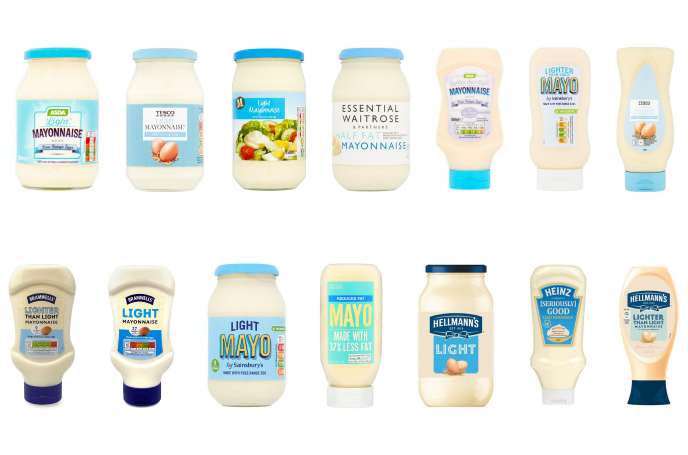Essential Guide to Fennec Fox Diet: Discover Nutritional Needs and Benefits in 2025
The fennec fox, known for its adorable large ears and small stature, has become a popular choice as an exotic pet, particularly due to its playful demeanor and unique appearance. However, proper care extends beyond just providing a loving home; it includes understanding the fennec fox diet and its nutritional needs. This guide aims to delve into the specific dietary requirements of fennec foxes, highlighting the balance of nutrients they require for optimal health. Proper nutrition can significantly affect a fennec fox's energy levels, longevity, and overall well-being, making it a crucial aspect of caretaking.
From the essentials of fennec fox food to their natural foraging behaviors in the wild, we will cover the fundamental aspects of their diet. Whether you are a current owner or considering adopting a fennec fox, this comprehensive guide will help you understand what constitutes a balanced meal for these delightful creatures. Explore the below sections to uncover the secrets to providing adequate nutrition for your fennec fox.
Key Takeaways:
- Understanding the natural dietary habits of fennec foxes is critical.
- Fennec foxes require a diet rich in protein and hydration.
- Proper feeding schedule and guidelines can enhance their health.
- Consideration of dietary restrictions and preferences is essential.
- Nutritional supplements play an important role in their diet.

Comprehensive Understanding of Fennec Fox Nutritional Needs
Fennec Fox Dietary Requirements
Understanding the nutritional needs of fennec foxes begins with recognizing what their bodies require. As omnivorous mammals, their diet will generally consist of protein sources, carbohydrates, fiber, vitamins, and minerals. In the wild, fennec foxes primarily hunt small rodents, insects, and occasionally fruit and vegetation, thus needing a diet that replicates these natural eating habits.
Content-wise, a fennec fox requires approximately 30% protein, 15% fat, and 50% carbohydrates in their diet. Ensuring that they receive adequate amounts of protein, especially from animal sources, is essential for their metabolic activities and day-to-day functioning.
It is equally important to incorporate hydration into their feeding plan. Since these animals originate from arid desert regions, their diet may consist of foods that naturally contain moisture, like certain fruits and vegetables.
Sources of Protein for Fennec Foxes
The primary protein sources for a fennec fox should include insects like crickets, mealworms, and sometimes small rodents. These insects are nutrient-dense and closely resemble what they would catch in the wild. It's essential to rotate these protein sources periodically to prevent any dietary deficiencies and keep your pet engaged at mealtime.
When feeding insects, ensure that they are sourced from reputable suppliers, especially if they are live. This guarantees that the insects are free of pesticides which can be harmful to your fennec fox.
Additionally, incorporating small amounts of chicken or rabbit meat can further diversify protein content at meal times. However, always ensure that any meat provided is cooked thoroughly to eliminate harmful bacteria.
Incorporating Fruits and Vegetables in Their Diet
Fruits and vegetables should make up a smaller portion of the fennec fox meal plan, ideally 10-20% of their total dietary intake. Leafy greens like kale and small pieces of carrot or cucumber can provide essential vitamins without overwhelming them with sugar or carbohydrates.
Fruits such as watermelon, blueberries, and apple slices (without seeds) serve as delightful treats that can increase hydration and offer natural sugars for energy. Moderation is key, and introducing new foods gradually while observing any reactions will help establish safe food options.
Understanding Fennec Fox Eating Habits
Although fennec foxes are primarily nocturnal, their feeding behaviors can change in captivity. It's important to set a routine feeding schedule, aligning with their natural tendencies for better acceptance of food intake. Offering smaller, frequent meals mimics their behavioral patterns in the wild.
Watch their eating habits as they might show preferences towards specific protein sources over others, and this can guide you in customizing their diet preferences, ensuring they get what they need nutritionally.
Hydration Strategies for Fennec Foxes
While fennec foxes are adapted to living in dry climates, they still require proper hydration to thrive. Fresh water should always be available. Additionally, including fruits with high water content, as mentioned earlier, can aid in their hydration needs. Keep the water and food bowls clean to prevent any health issues.
Feeding Guidelines and Tips for Fennec Fox Owners
Creating a Balanced Diet for Captive Fennec Foxes
A balanced diet for captivity includes planning meals carefully and ensuring the right mix of nutrients. Consider using a mix of commercial fox food fortified with proteins and vitamins together with fresh ingredients like meats, insects, and vegetables. The goal should be to maintain a fennec fox dietary balance that supports their overall well-being.
Mixing commercial dry food with wet food can help enhance palatability while also providing a variety of textures. Regular consultation with a veterinarian experienced in exotic pet nutrition can help maintain dietary adequacy and health checks.
Fennec Fox Animal Feeding Schedule
Feeding fennec foxes can be quite distinctive due to their active nature during nighttime. A typical schedule may involve feeding them twice a day, once in the evening and once around midnight, that replicates their natural hunting times. Avoid free feeding, as it can lead to obesity and a range of related health issues.
Vitamins and Nutritional Supplements
Considering fennec fox vitamins is vital, especially when their diet may lack specific nutrients. Vitamin D, calcium, and B vitamins can be critical additions to their diets. These help with bone health and metabolism. However, these should only be introduced based on veterinary recommendations.
Regular veterinary check-ups can also highlight deficiencies or imbalances in nutrients that can be addressed through supplementation, ensuring your fennec fox remains healthy.
Common Mistakes to Avoid in Fennec Fox Feeding
When it comes to fennec fox feeding, several common pitfalls can easily be avoided. First, never feed them dairy products, as most adult foxes are lactose intolerant. Also, be cautious with high-fat treats, as they can lead to health complications. Always research new foods before introducing them to your pet's diet.
Monitoring their weight and overall health is crucial to identify if the dietary plan needs adjustments, enabling proactive measures to avoid issues.

Wild Fennec Fox Diet and Its Implications
Exploring the Natural Diet of Fennec Foxes
The wild fennec fox diet provides insight into what constitutes their ideal nutrition. In the Sahara Desert, fennec foxes thrive on a diverse diet primarily consisting of insects, small mammals, and plant material. Hunting insects and small prey helps them meet their energy needs efficiently.
In addition to hunting, they may scavenge for fruits, which become a vital energy source as they hunt less in hot temperatures. Understanding these natural behaviors can guide pet owners in providing a similar experience for their captive animals.
Fennec Fox's Hunting Behavior in the Wild
Examining the fennec fox hunting behavior reveals not only their dietary preferences but also their extensive exploration and foraging tactics. They utilize their keen sense of hearing and small size to enhance their chances of capturing prey, making them adept nocturnal hunters.
Providing opportunities for enrichment in captivity—such as hiding food around their enclosure—can satisfy their natural instincts, ensuring they receive adequate physical and mental stimulation.
Impact of Diet on Fennec Fox Health
The implications of diet extend beyond simple feeding. Proper nutrition affects not only the fennec fox eating habits but also their overall health and lifespan. A diet low in essential nutrients may lead to health problems such as obesity, dental issues, and metabolic disorders.
Conversely, a well-balanced diet tailored to their nutritional needs will encourage longevity, vitality, and a more playful disposition.
Adapting Diet Based on Environment
Considering the adaptation of the fennec fox diet based on environmental changes is crucial. The deserts' limited food availability forces these foxes to adapt by becoming versatile eaters, which is a quality that can be mirrored by pet owners who must adjust their feeding practices as their fox grows or if they need specific dietary adjustments.
Frequently Asked Questions about Fennec Fox Diet
What should I primarily feed my fennec fox?
Your fennec fox's diet should include high-quality protein sources such as insects and small animals, supplemented by fruits and vegetables for vitamins and hydration. Regular veterinary advice is recommended to ensure a balanced meal plan.
Can fennec foxes eat fruits and vegetables?
Yes, fennec foxes can eat fruits and vegetables, but these should make up a small percentage of their diet. Ensure the fruits you provide are safe and suitable for your fox, avoiding any harmful seeds or pits.
How can I ensure my fennec fox is properly hydrated?
Ensure fresh water is always available, along with hydration-rich foods such as fruits. Monitoring their water intake daily can help ensure they are adequately hydrated.
Are there any foods I should avoid giving my fennec fox?
Yes, avoid feeding dairy products, chocolate, caffeine, and processed foods, as these can be harmful to your fennec fox's health.
What are the consequences of a poor diet for a fennec fox?
A poor diet can lead to obesity, nutritional deficiencies, and a lower overall lifespan. Ensuring proper nutritional intake is crucial for their quality of life.
